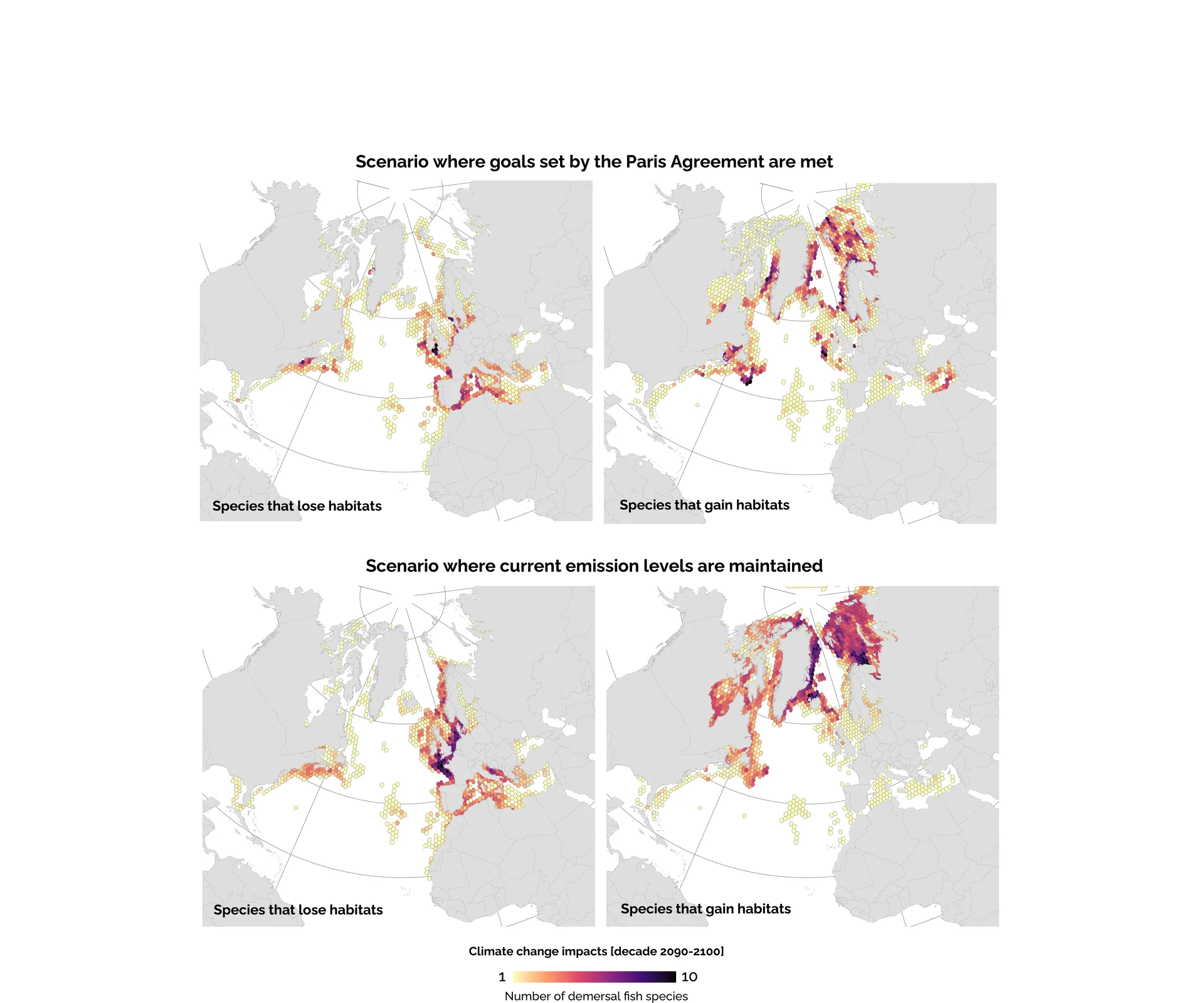Scientific publication
The benefit of the Paris Agreement for demersal fishing targets
Machine learning distribution modelling demonstrates the benefits of complying with the Paris Agreement for 10 commercially important groundfish species distributed in the North Atlantic.
Credits: Ricardo Resende on unsplash
With climate change challenging marine biodiversity and resource management, it is critical to anticipate future latitude and depth shifts under contrasting global change scenarios to support policy-relevant assessments of biodiversity impacts [e.g., Intergovernmental Panel on Climate Change (IPCC)].
In this publication we demonstrate the benefits of complying with the Paris Agreement (United Nations Framework Convention on Climate Change) and limiting environmental change, by assessing future distribution shifts of 10 commercially important groundfish species.
We did this throughout the Northern Atlantic Ocean and analyses of distributional shifts compared current conditions (2000-2017) with two representative concentration pathway scenarios (RCPs) for future climate change (2090-2100): one following the climate constraints of the Paris Agreement (RCP2.6) and another without stringent mitigation measures (RCP8.5).

We use machine learning distribution modelling with biologically informative predictors to project future latitudinal and depth shifts. Overall, we showed that incorporating biologically informative predictors beyond temperature into species distribution modelling can improve predictive performance, and that limiting future climate change by adhering to the Paris Agreement may translate into reduced distribution shifts, supporting biodiversity conservation and resource management.
Main reference
Martins, M. R., Assis, J., and Abecasis, D. (2021). Biologically meaningful distribution models highlight the benefits of the Paris Agreement for demersal fishing targets in the North Atlantic Ocean. Global Ecology and Biogeography.
- Featured publications